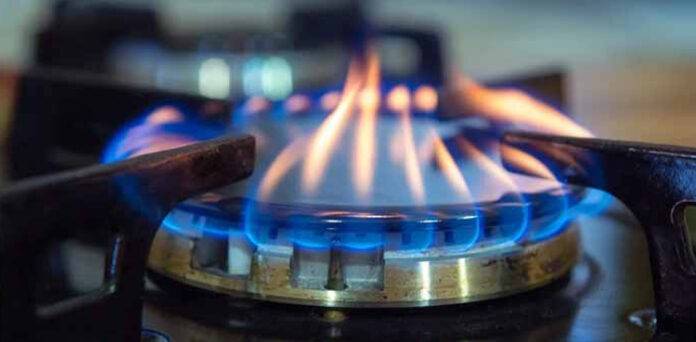Islamabad (Web Desk): The Interim government on Monday approved a massive hike with up to 193% in gas tariff starting from November 1, 2023, to save gas companies from bankruptcy, with subsidies for richest exporters and industrialists to be remained.
In a significant development on Monday, Caretaker Finance Minister Shamshad Akhtar convened the Economic Coordination Committee (ECC) meeting where the Petroleum Division’s proposal for a substantial, across-the-board gas price hike for all sectors was approved.
The fixed monthly charges for domestic protected consumers have seen a significant rise from Rs10 to Rs400. For non-protected consumers, the charges have been divided into two slabs.
The first category, up to 1.5 hm3, has seen an increase from Rs460 to Rs1,000. For the second category, above 1.5 hm3, the charges have been raised from Rs460 to Rs2,000.
While the tariff for the protected consumers, who constitute 57% of the domestic users, remains unchanged. However, there has been a significant adjustment in the fixed monthly charges for this category. These charges have been escalated from the existing Rs10 to Rs400 per month. This will escalate the annual bill of this category up to 150pc.
For non-protected domestic consumers, a significant increase was approved in gas rates. The rates will rise by 50pc to Rs300 per mmBtu for consumption of up to 0.25 hcm, double to Rs600 per mmBtu for 0.6 hcm, and increase by 150pc to Rs1,000 for up to 1 hcm.
The most ample increase of 173pc was made in the slab up to 3 hcm, where the prices will jump to Rs3,000 per mmBtu from the current Rs1,100.
The tariff for bulk consumption was increased from Rs1,600 per mmBtu to Rs2,000. However, the special commercial category (tandoor roti) will remain unchanged at Rs697 per mmBtu.
For commercial consumers, a significant tariff hike of over 136pc was approved, raising the rate to Rs3,900 per mmBtu. Cement factories and CNG stations are expected to see an increase of more than 193pc and 144pc, respectively, bringing the tariff to Rs4,400.
The ECC approved increasing the prices of gas being consumed by exporters from Rs1,100 to Rs2,050 per mmbtu, an increase of Rs950 or 86%. But the rates are still Rs1,600 per mmbtu lower than the imported gas prices which is equal to 44% of the imported gas price. The subsidy will be paid by charging higher gas rates from domestic consumers having higher consumption, CNG consumers, commercial consumers and cement manufacturers.
Similarly, for industrialists who do not export goods but have captive plants, the ECC increased the prices from Rs1,200 to Rs2,600 per mmbtu, an increase of Rs1,400 or 116%. But still these rich industrialists would get a subsidy of Rs1,050 per mmbtu, equal to 29% of the imported gas price.
The finance ministry officials pushed the ECC to consider its decision about provision of subsidised gas to the exporters. The Planning Commission also supported cutting the gas supplies to the export industries and giving it to efficient power plants to achieve lower generation cost. But the ECC did not agree.
According to the summary, the revision of gas prices was due on July 1, 2022. However, the previous PMLN-led coalition government delayed this decision, leaving this significant task to the interim government.
The two companies in question, SSGC and SNGPL, have already reported a deficit of Rs46 billion for the period from July to September. The gas sector circular debt has already peaked to Rs2.1 trillion and an increase in prices would help companies recover additional Rs395 billion from the consumers.
It is pertinent to mention that natural gas reserves of the country are depleting at a compound annual growth rate of 5-7pc, as per the Petroleum Division estimates.
It should be noted that this development comes before the International Monetary Fund (IMF) scheduled review later this month that had asked Pakistan to cut the inflating circular debt in the energy sector.


